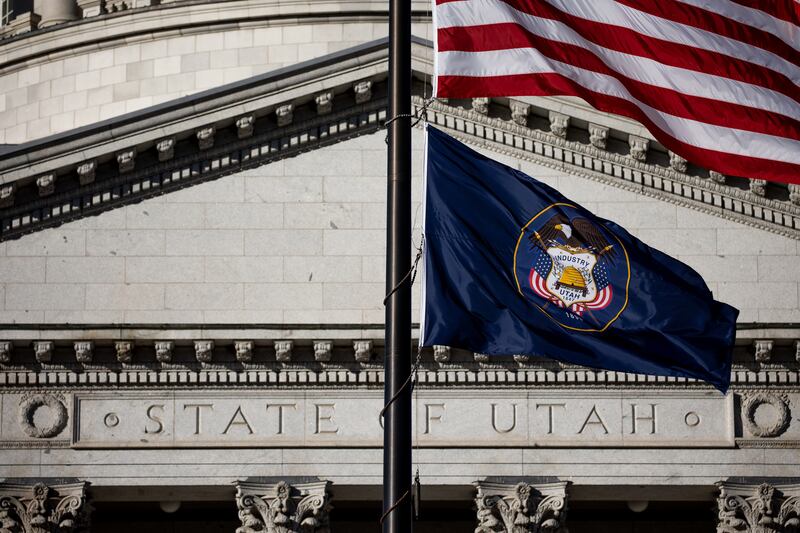The events of Jan. 6 horrified Americans who watched as extremists invaded the U.S. Capitol, attacked police officers, stole or defaced government property, and threatened federal government officials. However, this act was merely the culmination of several years of increasing partisan division and political extremism. It is time to take action to reverse this dangerous trend, particularly now that we see its stark consequences for our nation.
Utah should lead the way in changing the political culture that has poisoned political discourse and made compromise difficult. Some citizens of Utah have sought to bring people together and stand up for principles of civility, civic engagement and good government. For example, the Utah Debate Commission, a nonprofit organization, sponsors civil, substantive, nonpartisan debates that help citizens gain essential information for voting and has become a model for other states.
Also, the United Utah Party was formed as a centrist party to unite former Republicans, Democrats and independents who have become disenchanted with the extremism within the major parties. Another group, Mormon Women for Ethical Government, has called out unethical behavior by politicians. And an ad by the two major party candidates for governor, Spencer Cox and Chris Peterson, received nationwide attention because both candidates urged civility.
Utah can set an example. But how? One way is for Gov. Spencer Cox to appoint a Commission on Civic and Civil Engagement. Former Gov. Jon Huntsman Jr. appointed a similar commission in 2009. The commission’s goal was to find ways to strengthen democracy. A new commission, however, should have a broader mandate that includes not only how to involve citizens in a positive way in their own governance, but also how to encourage such civic engagement to be civil.
What would this commission look like? It should include a mixture of political leaders and citizens. The previous commission was too top heavy with political leaders. Cox’s commission, however, should include more citizens. The governor could solicit nominations for the commission from among ordinary citizens. It should also be diverse, including individuals who have been involved previously but those who have not. As well, diversity should exist in terms of gender, race, religion and party affiliation (or no affiliation).
How could the commission do its work? First, it should actively solicit citizen input. One way is to put out a call for citizen ideas about how best to change the tone of public discourse, encourage civil public involvement and continue to strengthen democracy. Utahns would provide a plethora of ideas about how to accomplish these goals, if asked. This solicitation also could be achieved through a series of town hall meetings that are livestreamed and encourage social media contributions for those who cannot attend in person.
The mission of the commission could be to take the ideas generated by citizens and political leaders and create a set of recommendations within three broad areas: civil public discourse, civic engagement and democratic governance. These proposals then would be passed on to the governor and the state Legislature. For example, a proposal to create a gubernatorial ombudsman for citizens complaining about unresponsive government leaders would go to the governor. Or a proposal regarding the use of ranked-choice voting in all elections, which leads candidates to appeal beyond their partisan bases, would be submitted to the Legislature..
Other proposals might be directed at nongovernmental entities for their consideration. For example, if the commission proposed the creation of a nonprofit, independent group to monitor local campaign advertisements for accuracy, the private sector would be expected to find a means to implement that proposal.
Direct action is needed not only to prevent a local version of what Utahns saw happening on the national level, but also to create more civic involvement in positive ways. By doing so, Utah can become an example of a state and people who take seriously the call to become civically engaged, but also to respect others who differ politically. The United States sorely needs such a model today.
Richard Davis is a political science professor at Brigham Young University and former chairman of the United Utah Party.


